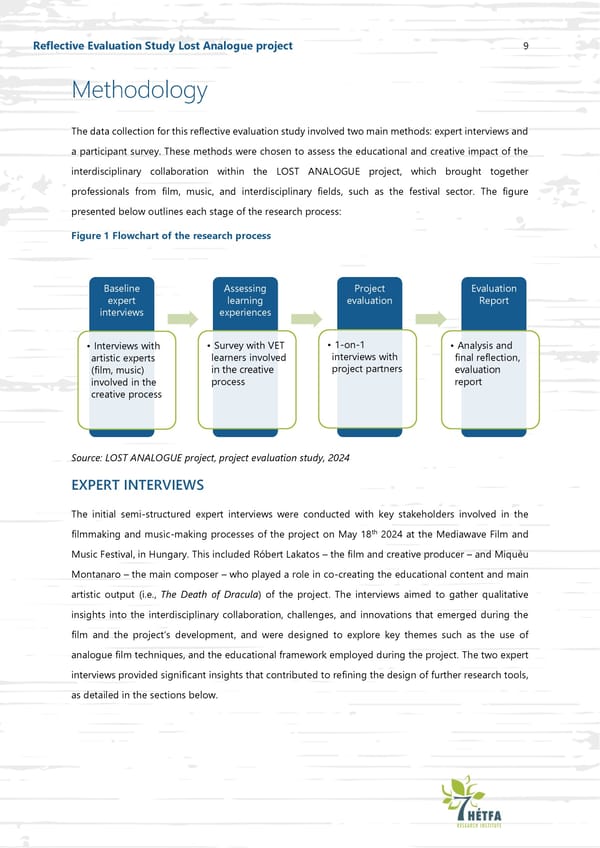9 Reflective Evaluation Study Lost Analogue project M ethodology The data collection for this reflective evaluation study involved two main methods: expert interviews and a participant survey. These methods were chosen to assess the educational and creative impact of the interdisciplinary collaboration within the LOST ANALOGUE project, which brought together professionals from film, music, and interdisciplinary fields, such as the festival sector. The figure presented below outlines each stage of the research process: Figure 1 Flowchart of the research process Source: LOST ANALOGUE project , project evaluation study, 2024 E XPERT I NTERVIEWS The initial semi - structured e xpert interviews were conducted with key stakeholders involved in the filmmaking and music - making processes of the project on May 18 th 2024 at the Mediawave Film and Music Festival , in Hungary . This included Rbert Lakatos the film and creative producer and Miquu Montanaro the main composer who played a role in co - creating the educational content and main artistic output ( i.e., The Death of Dracula ) of the project. The interviews aimed to gather qualitative insights into the interdisciplinary collaboration, challenges, and innovations that emerged during the film and the projects development , and were designed to explore key themes such as the use of analogue film techniques, and the educational framework employed during the project. The two expert interviews provided significant insights that contributed to refining the design of further research tools, as detailed in the sections below . Baseline expert interviews Interviews with artistic experts (film, music) involved in the creative process Assessing learning experiences Survey with VET learners involved in the creative process Project evaluation 1 - on - 1 interviews with project partners Evaluation Report Analysis and final reflection, evaluation report
 Celluloid Connections: Cultivating creative skills through analogue film and musical collaboration Page 9 Page 11
Celluloid Connections: Cultivating creative skills through analogue film and musical collaboration Page 9 Page 11